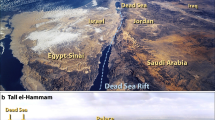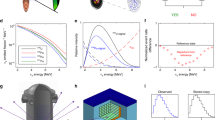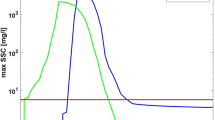Abstract
THE detonation of a low-yield nuclear device in Western China at 1900 h, October 16, 1964 (New Zealand time), was reported, and tests for barium-140 were included in our routine investigations of fall-out at Gracefield, Wellington (41° 14′ S., 174° 55′ E.), to identify debris from this test. Barium-140 was detected in rainwater samples collected between December 1, 1964, and January 1, 1965, and the deposition was 50 ± 10 mc. per square mile. It would appear, therefore, that debris from this first Chinese bomb took between 45 and 76 days to reach Wellington.
This is a preview of subscription content, access via your institution
Access options
Subscribe to this journal
Receive 51 print issues and online access
$199.00 per year
only $3.90 per issue
Buy this article
- Purchase on Springer Link
- Instant access to full article PDF
Prices may be subject to local taxes which are calculated during checkout
Similar content being viewed by others
References
McNaughton, G. S., and Woodward, R. N., Nature, 191, 1344 (1961).
McCallum, G. D., and Woodward, R. N., Nature, 209, 69 (1966).
Author information
Authors and Affiliations
Rights and permissions
About this article
Cite this article
WOODWARD, R. Transfer of Northern Hemisphere Fall-out to the Southern Hemisphere. Nature 210, 1244–1245 (1966). https://doi.org/10.1038/2101244a0
Issue Date:
DOI: https://doi.org/10.1038/2101244a0
This article is cited by
-
Cosmogenic and bomb-produced7Be in stratospheric air
Journal of Earth System Science (1980)
Comments
By submitting a comment you agree to abide by our Terms and Community Guidelines. If you find something abusive or that does not comply with our terms or guidelines please flag it as inappropriate.



